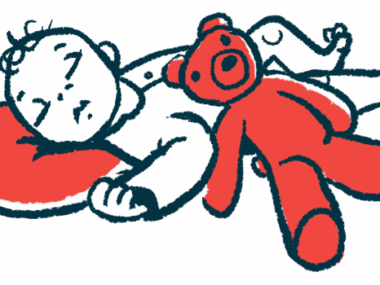Early Use of Growth Hormone Treatment Tied to Better Cognition in Small Study
Written by |

Starting treatment with growth hormone early in life — before age 2 — was associated with better cognitive and behavioral outcomes for children with Prader-Willi syndrome (PWS) in a recent study out of Spain.
“We found greater cognitive and adaptive performance in patients who had received early treatment,” its researchers wrote.
“The findings of this study are especially important because currently, there are governmental/health limitations in relation to the age of initiation of GH treatment, sometimes resulting in very complicated administration at early ages and often starting above 2–4 years of age,” they added. “These results contribute to the evidence that it is necessary to modify the existing limitations, thus favoring early treatment.”
The study, “Cognitive and Adaptive Effects of Early Growth Hormone Treatment in Prader–Willi Syndrome Patients: A Cohort Study,” was published in the Journal of Clinical Medicine.
PWS is characterized by abnormally low levels of certain hormones, including growth hormone (GH) — which, as its name implies, plays an important role in regulating the body’s growth, particularly in childhood and adolescence. In PWS, treatment with GH can help normalize growth rates and body composition, part of standard care for the disease.
GH also helps regulate biological activity within the brain. As such, GH treatment in PWS may affect cognition and behavior, but this remains poorly studied. Whether the timing of GH treatment initiation influences its effects on cognition is unclear.
Here, researchers compared cognitive and behavioral scores for 31 people with PWS. Ten of these patients, designated group 1, started treatment with GH prior to age 2. Most of these children, ages 5 to 8 at the study’s start, had been on GH since before their first birthday.
The other 21 patients, group 2, started on GH later on during childhood, at a median age of around 4.5 years, or had never received it. These patients were between the ages of 17 and 25 at the time of the study.
The researchers noted the difference in age between the two groups “is because currently, treatment is started earlier than in the past, so Group 1 included mostly younger patients.” They added that all tests used were adapted by age.
“This is a pioneering study in Spain and, as far as we know, the first study to assess the cognitive effect of [growth hormone] treatment started before the age of 2 years,” the scientists wrote.
To assess cognition, they calculated the total IQ, which measures cognitive ability according to a person’s age. In group 1, the median IQ was 74 points, significantly higher than in group 2, where the median score was 58 points. An IQ score lower than 70 has been used considered to indicate cognitive impairment.
Another cognitive assessment, the General Ability Index (GAI), also was significantly higher among patients who started on GH treatment early in life: the median GAI was 77 in group 1 and 62 in group 2.
“Group 1 (early treatment) obtained an intellectual performance in the limit range of normality … while Group 2 (without early treatment) obtained a performance corresponding to an intellectual disability ranging from mild to moderate,” the researchers wrote.
Assessments of adaptive capacity — the social and technical skills needed in daily life — also showed a significantly higher median score in group 1 than group 2, 87.5 vs. 53.
Assessments of processing speed — the time to take in and use information — and verbal ability did not reveal statistically significant differences between the groups, though scores tended to be higher in group 1.
As for processing speed, the researchers noted that, generally, scores in group 1 were relatively homogenous — that is, most patients in this group had relatively similar scores to each other. By contrast, “Group 2 presented a much more dispersed distribution, and 75% of the cases had scores below almost the entire Group 1,” the researchers wrote.
“The results suggest that early treatment with GH has beneficial effects on the cognitive and adaptive performance of patients with PWS and that it should be administered in the early stage of development (before 2 years) for greater benefits,” the team concluded.
Noted limitations of this study, according to the researchers, include the relatively small sample size, as well as underlying differences between the two groups that may have impacted the results.
“More studies with larger samples are necessary, also taking into account other [health conditions] that can impact cognitive function, such as metabolic status or thyroid function,” they wrote.






